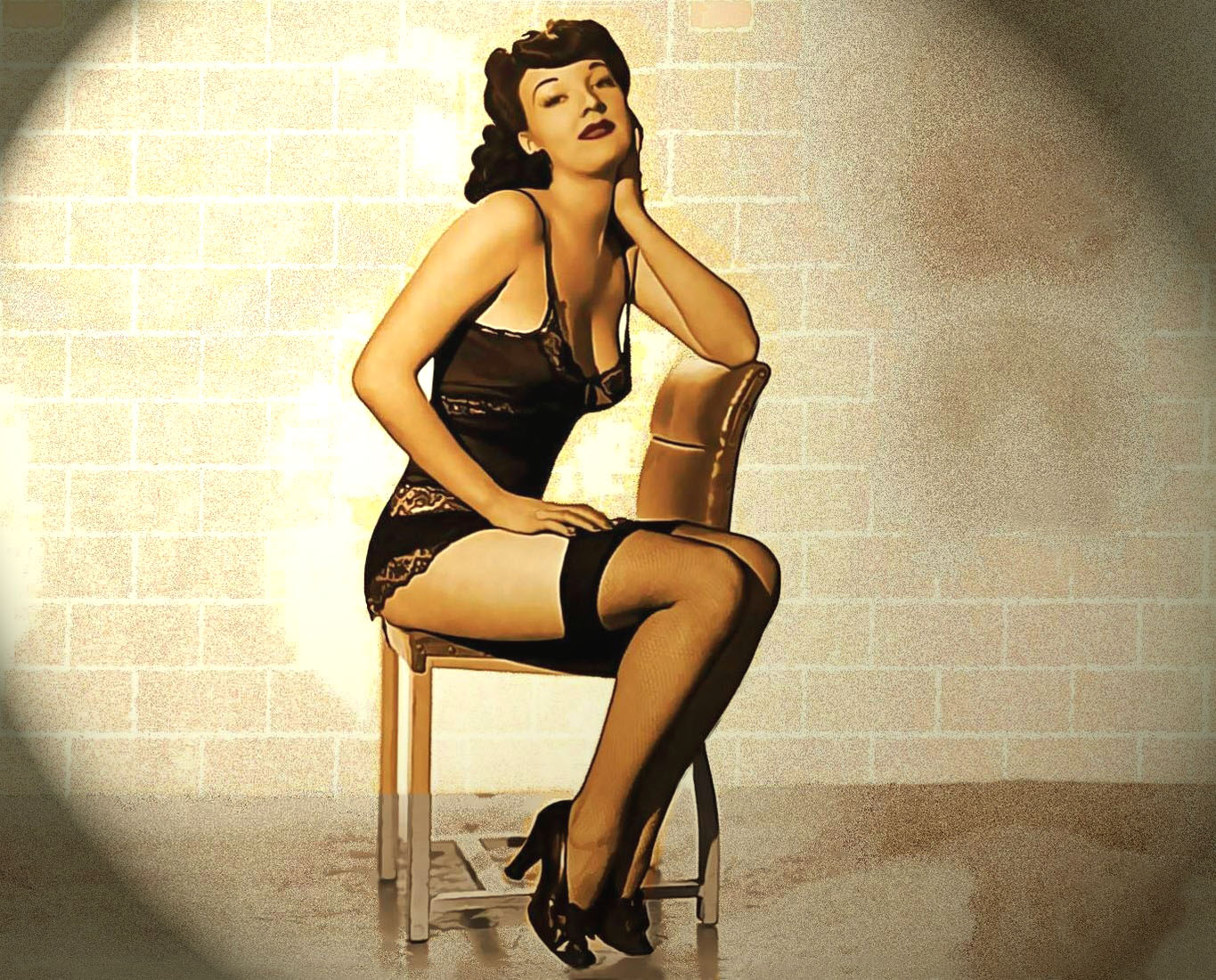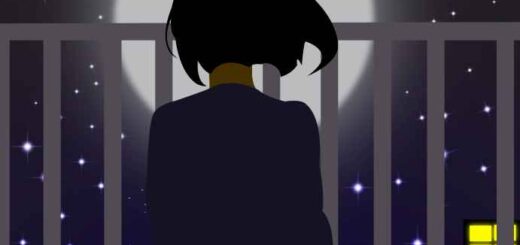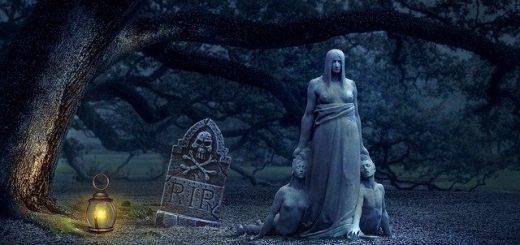Death in the Oranges by Marc Egnal

Death in the Oranges by Marc Egnal
When I was nine, my father was shot dead in front of the dry cleaners he owned. My mom gave me, and my five-year-old sister, Angelica, a short, unsatisfactory explanation. “Bad guys mixed him up with someone else,” she said. Even then I sensed there was more to it. The Star-Ledger printed his picture on the front page. The only part of the paper I usually looked at was the comics, but glancing at the story about him, I could see it mentioned the Mafia, gangs, and criminals.
After the burial, everyone came back to our house, filling our modest home with relatives clad in their Sunday-best. I had aunts and uncles on both sides, and bunches of cousins. One of those cousins, Aldo, whom I had never liked, took me aside, and said with a fiendish grin, “You know your dad tried to cheat the mob.” I didn’t know whether Aldo made that up, or heard it from his father, Tomasso, who was my dad’s younger brother. I told him he didn’t know what he was talking about and repeated my mom’s explanation.
At Blessed Sacrament, the school Angelica and I attended, I was a minor celebrity because of my father’s murder. For us kids, the existence of the Mafia stood somewhere between rumor and fact. If some of our dads were in the mob, none of us knew that for certain. We were far more aware what our moms did: with rare exceptions, they were homemakers.
Questioning my mother, only made her angry. “Don’t ask me again. It’s disrespectful to your father,” she said, crossing herself. “He was a good man. The shooting was a horrible mistake.”
I tried to think what I knew about my dad. During my nine years, he remained a distant figure, rarely spending much time with me or Angelica. Our mother took us to school, made the meals, and watched us in the playground. He was the disciplinarian of last resort, absolute in his judgements. He led the family to church on Sunday, and I remember him sitting very straight and unsmiling in our pew. He instructed us to say our prayers each night, and he prayed regularly as well.
My father rarely had visitors apart from Tomasso, his younger brother, and Emilio, his older one. When they were together, their conversations often were in Calabrese, the southern Italian dialect they had spoken as children. On two occasions I remember furious arguments, with his brothers shouting at him. I didn’t understand what they were saying, and I’m not sure that my mom, whose family came from Genoa, could either.
During those years, I raised the issue with my mom only one more time. She had taken a job – unusual among her friends but clearly a necessity after my father’s passing. She took a course in bookkeeping and managed the ledgers for a dental supply company owned by a family acquaintance. She sold my dad’s Caddy but kept the Plymouth. Apart from now having only one car, our lifestyle seemed unchanged.
In 1999 the TV show The Sopranos began, and that stirred me again to think about my dad’s killing. I was now 15 and my father’s death remained the great unmentionable in family discussions — a silence that troubled me. I was also bothered that the police had ended their investigation after only a few months. They interviewed various family members, including my mom, but I don’t think they learned much. If my family was part of the mob (and here I was guessing) they adhered to the traditional vow of silence.
My mom was fascinated by The Sopranos and wasn’t sure she should allow us kids to watch it, but we all did. We huddled on the sofa every Sunday night at 9 pm. I wondered how closely those fictional characters resembled my dad. North Caldwell, New Jersey, where Tony Soprano’s home was located, was just a few miles north of our house in West Orange.
After two episodes, with my emotions stirred up by the drama, I said to my mom, “This show is really about us, isn’t it. It’s showing us dad’s life.”
I regretted those words as soon as I said them and waited for her to get angry. She didn’t. Instead, she said to me, “Michael, don’t go there. Your dad was a good man. Sometimes he was foolish, and he made some big mistakes.” She looked at me, lowered her voice, and added, “It’s safer not to ask those questions.”
That response was very different from her earlier “mistaken identity” story. She refused to say more, and those few sentences hardly quieted my concerns.
& & &
Only in the first months of 2021, when I was in my mid-30s, did I come to understand why my father was shot. I had not entirely abandoned my search for answers, but life intervened and for many years the reasons for his killing seemed a closed book set on a high shelf.
After high school I enrolled in Rutgers in the business program. In the summer between my first and second year, I worked for my uncle Tomasso, who owned several automotive body shops in the Oranges and Montclair. His son, Aldo, managed one. Aldo, now a father with two small kids, had mellowed. When I asked him about the comments he had made after the funeral, he apologized and explained he used to say stupid stuff just to get a rise out of people.
Uncle Tomasso had little to add. “Best not to ask,” he told me, which seemed to be our family’s position. He remarked, “Your dad could be foolish, but I still loved him.”
If there was a code of omertà, that silence seemed designed to keep me from learning anything about my father’s death. My sister, Angelica, was also determined to let it go. She was now in high school, beautiful as her name might suggest, and resolved not to have any unsavory connections taint her image. She was quick to shut down any conversations I might start about our dad’s murder.
After graduation I got a job as a claims adjuster in the Newark offices of Prudential Insurance. I bought a small house in East Orange, a short commute to work, and not far from where my mom still lived. Those were the days when modest homes were still affordable. I also married Penelope Doukas, a woman whose background was Greek. I adored her. We had met at Rutgers; she was lovely and smart and worked in banking. We had a daughter and together confronted the craziness of a life with a small child and two careers. Exploring the past was a luxury.
Then in 2020 the pandemic struck, and our lives changed again. We both now could work from home. In November another big insurance company, The Hartford, surprised me with a job offer: managing property claims in New Jersey. It was a lot more money and responsibility, and I could continue to work from home, except for two trips a year to their Connecticut headquarters. I accepted with the condition that I start on April 1. I resolved to take off the first three months of the year to catch my breath and recover from an exhausting year. I also wanted to scratch the itch that wouldn’t go away: the puzzle of my father’s murder. Penny encouraged my investigation; she knew how the unknowns about that killing and about my dad’s life haunted me.
I began my research with the Star-Ledger and New York Times. The murder occurred August 21, 1993, and I examined the coverage for that date and the next months. Anthony Pugliese (my father) was “cut down by a hail of bullets,” the Star-Ledger wrote. The reporter concluded that the Mafia was “sending a message.” The dry cleaners stood in a strip mall, the killing was mid-afternoon, but no one saw anything – no glimpse of the gunmen or even the make of the car that pulled into the small plaza. Employees in the computer repair shop on one side and the clothing store on the other side, explained they hid behind counters until the shooting stopped.
My uncles told the reporter from the Star-Ledger they were simply shocked by the killing. Tomasso said his brother was “a quiet and religious man, who ran the best drycleaning establishment in West Orange.”
The New York Times noted the killing in their three-part series on the New Jersey Mafia. The mobsters made their money from a long list of activities, including drugs, prostitution, loansharking, theft at the port of Newark, waste management violations, and cement and construction violations. In 1993 the New Jersey Mafia was in turmoil. Its leader, Giovanni Riggi, had just been sent to federal prison in North Carolina, and a “ruling panel” was making decisions. They feared the encroachments of other gangsters, particularly the “Five Families” in New York.
The enquiry into the killing, led by the New Jersey State Commission of Investigation, lasted only weeks and turned up no answers. The lead detective, Latham Wooster, I noted, had died in 2018.
I decided to visit my dad’s older brother, Emilio. I saw him a couple of times a year at the events – weddings, christenings, funerals – that brought our family together. But we never exchanged more than a few words. He was an intimidating presence, a large, tough-looking individual. Having seen The Godfather too many times, I imagined him as a mob enforcer. In fact, he was a licensing and building inspector for Essex County. That extensive jurisdiction included not only the towns where we lived, but also the city and port of Newark.
His home in Bloomfield, just north of the Oranges, seemed like a baronial estate. You pulled up on his circular driveway to a stately Georgian. He clearly had wealth beyond whatever the county paid him. One glance at that home, which I had seen before but never really thought about, strengthened my strong suspicions about the ties between our family and the mob.
I had called ahead, and Emilo and his wife Giulia greeted me warmly. She had made a panettone and offered me a slice along with a cappuccino. I thanked her, and then she withdrew. This was to be a man-to-man talk.
I told my uncle why I had come. He seemed unsurprised. “Michael,” he said, “I loved your father dearly, and miss him every day. Did you know he was an altar boy. He wanted to be a priest. He named you after the archangel Michael, and your sister, Angelica, after the other angels.”
I had not known that.
Emilio continued: “Perhaps the Church would have been a better place for him. But in our family, for the men, there was no choosing. Your grandfather pushed him into what you might call our family business.”
Each of those statements raised many questions for me, but I simply said, “Thank you for telling me this.”
He went over to a cabinet that stood across the room and took out a large manilla envelope. It was sealed with many layers of cellophane tape and had my name on the front. Emilio handed it to me. “Your dad wanted you to have this,” he said.
“What?” I shouted at him. “When were you planning to give this to me? If I hadn’t come over today, would I have ever seen it?”
Emilio replied calmly, “He said to give it to you when the time was right.”
I asked if there was one for Angelica. There wasn’t. Welcome to the patriarchal world of my parent’s generation and the mob.
“I haven’t looked inside,” my uncle said. “Your father had a good idea where his path was leading, and I believe you’ll find some answers in those papers. Tommy and I tried to persuade him to rethink his plans. What he did also caused us many problems.”
I found myself trembling at what had just descended on me. My panettone sat on the table half eaten, my cappuccino untouched. I thanked Emilio, told him to pass along my regards to Giulia, and left, clutching the unopened brown envelope.
When I got home, I briefly explained to Penny what had happened, and then retired to the bedroom, closing the door, to look at the time capsule I had been handed. The envelope held about a dozen pages and a small ledger.
The top sheet read, “Michael, I wanted you to know what I did and why I did it. Con amore, tuo padre.”
Reading that, I broke down in tears and sobbed. During my life he had shown no affection. So, that note stirred up deep emotions. Penny must have heard me in the living room and came in to see what the problem was. When I showed her the note, she put her arm around me. Then she again gave me privacy to read the materials my dad had left.
The envelope included eight pages of a draft letter, written on yellow, lined sheets. The essay was a study in anguish and indecision. Large passages were crossed out, while some sentences were added back. The final letter was certainly far shorter than the musings that filled those pages.
Much of it read more like a sermon than a letter, and I wondered if it was intended as a moral lesson for me.
The letter was addressed to Giacomo Amari, the first among the equals running the New Jersey Mafia. It began:
Signor Amari,
As a believing Christian, I can no longer perform the duties the Family asks of me.
Here followed the first of many Biblical quotes – all of which my father eventually crossed out. “Do not profane your daughter by making her a prostitute, lest the land fall into prostitution and the land become full of depravity.” Other quotes touched on usury and theft.
The letter concluded: My brothers strongly oppose my decision. They are loyal and blameless. But I want my children to know that I have tried to follow God’s commandments.
Respectfully,
Anthony Pugliese
I could see the man who drafted that conscience-stricken confessional as the father who sat grimly beside us in church and prayed so ardently every night.
The envelope held several other pages. Those sheets had columns of numbers, accompanied by initials. The ledger was a small book, featuring dates and amounts but no other clues.
But what interested me most was a scrap of paper that said: “JKJFB 23.” Below it was a phone number, mostly crossed out, but I could see it was a 212 — New York City – area code. At first, I thought it might suggest another Bible passage. But then I had a hunch, and the answer became clear.
JKJFB 23 referred to the Jacob K. Javits Federal Building, 23rd floor – the New York office of the FBI. I could see why my mother and Uncle Tomasso called my dad “foolish.” He had done more than attempt to resign from an organization that allows no resignations. His blazing moral compass led him to expose the Mafia’s activities. The ledger and lists of numbers were information he was determined to share. But somewhere in that porous border between law enforcement and law breakers, my father’s plans had been revealed. Retribution was swift.
He was a foolish man, self-righteous, stubborn, and naïve in frightening ways. But he was also principled and courageous. He had been an aloof, distant father. But he also, clearly, cared what I thought about him, and in his own way he was concerned about the path I would choose. His legacy was a complex one, and I knew I would be thinking about it for years to come.
* * * * THE END * * *
Copyright Marc Egnal 2024
























This story, and the intelligent manner in which it is written, is just so believable that I wonder if it has a seed of truth. It sketches what we’ve come to know as a mob family, but it is also subtle and nuanced. i enjoyed it very much. The writer’s skill is evident in meaningful phrases like, “….and for many years the reasons for his killing seemed a closed book set on a high shelf.” A wonderful metaphor!
Thanks, Bill, your kind words are appreciated. I have one other story, “Golden Gate,” that you may enjoy. It’s also published by Freedom Fiction.
Best,
Marc